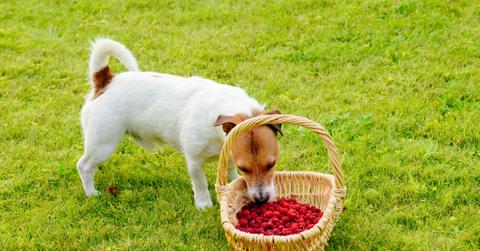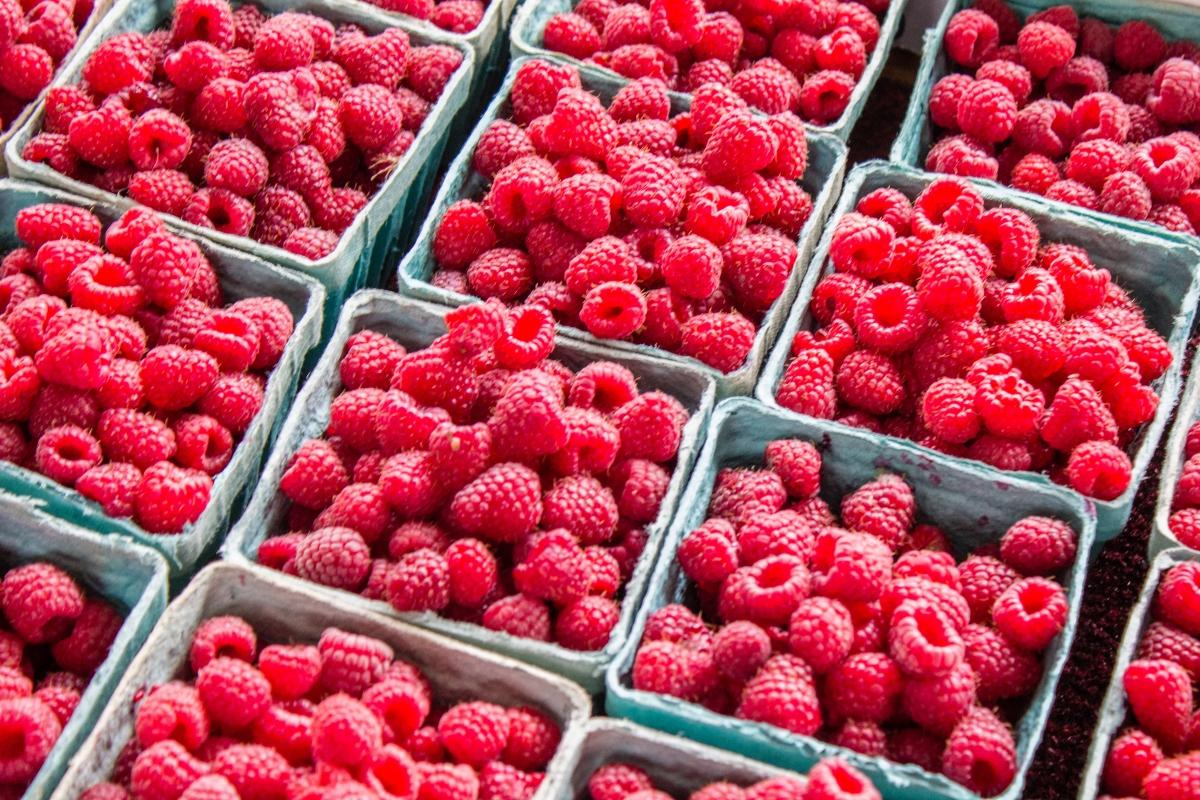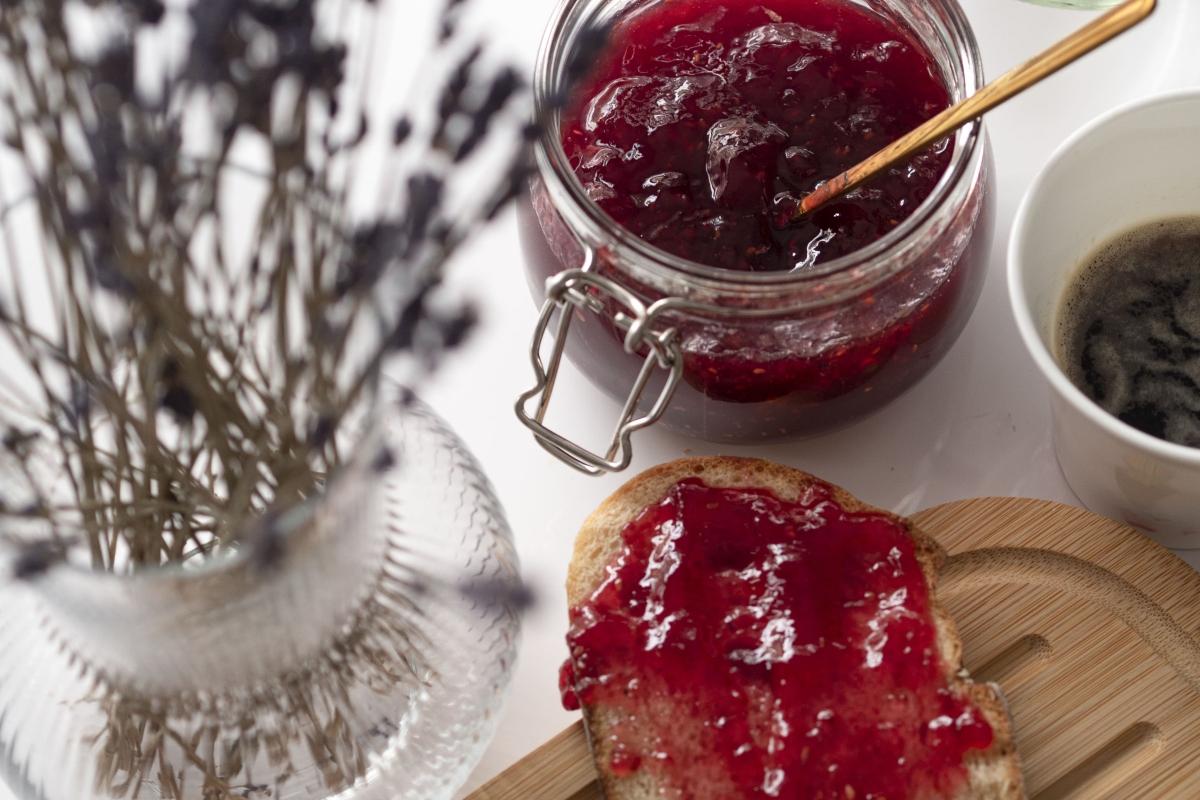Read This Before Feeding Your Dog Raspberries
Updated Jan. 10 2024, 4:29 p.m. ET

It can feel like navigating a minefield, figuring out which snacks are safe and healthy to give your dog. Of course, offering your dog foods off your plate is tempting, including that you know are good for humans. Cherries aren't good for dogs, but can dogs eat raspberries as a treat?
The good news about raspberries is that they're not toxic to dogs, so if a few berries fall to the ground and your pooch gobbles them up, it's no big deal. But you should know how much is safe for dogs to eat and how they should be prepared.
Can dogs eat raspberries?
Yes, raw raspberries are fine for most dogs to consume — but the key is to only allow them small amounts.
“There are no known adverse effects caused by feeding raspberries [to dogs],” veterinarian Dr. Travis Arndt told The Dodo.
How many raspberries can my dog have?
Dogs should only eat raspberries in modest amounts. Vet Dr. Jennifer Coates told The Dodo that you should be safe to give your dogs a few raspberries every day as a treat.
Additionally, vet Dr. Michael Thompson told The Dog People that “In moderation, raspberries can be a great snack for dogs for their antioxidant properties and fiber content.”
Basically, think of raspberries as a dog treat, and only give your pup a handful each day, maximum.
Can dogs eat raw raspberries or do they need to be cooked?
According to NativePet, you should only feed dogs fresh, raw, or thawed raspberries that are unsweetened. So if the berries have been frozen and you let them thaw, you can safely feed them to your dog. Otherwise, raw fresh berries are fine too, but avoid any prepared raspberries.
Raspberries provide antioxidants and nutrients such as dietary fiber, Vitamin C, and Vitamin K. In addition, raspberries contain minerals like folic acid, manganese, and iron. According to the American Kennel Club (AKC), raspberries may benefit senior dogs due to their anti-inflammatory properties.
There's one ingredient in raspberries to watch out for, however.
Although raspberries are technically safe for dogs to eat, you'll need to be cautious about one ingredient found in the sweet berry. Raspberries contain high levels of the natural sweetener xylitol, as noted by Purina. Some possible side effects of eating too many raspberries include low blood sugar, liver failure, and gastrointestinal distress.
Dogs can consume toxic amounts of raspberries if you're not careful. So it's essential to monitor how much your dog eats of treats like raspberries. Only allow them one raspberry at a time and no more than a handful of the fruit each day.
Additionally, while most dogs can eat small quantities of raspberries safely, dogs that are diabetic shouldn't consume them. Always ask your veterinarian if you're unsure about your dog's case.
Can dogs eat raspberry jam?
Don't assume that raspberries being safe for dogs means they're safe in all forms. You should not feed dogs frozen berries (they're fine if you thaw them first, though). Avoid other products such as raspberry jam, jelly, or sweetened raspberry. Jams and jellies typically contain high levels of sugar.
What's the best way to feed a dog raspberries?
Raspberries are a treat for dogs, which means moderation is key. Most of your dog's diet should consist of nutritious protein-based dog food, with raspberries reserved as a special treat. Consider your dog's size in determining the number of raspberries they eat. Pumpkin Pet Insurance suggests only 1-2 berries for small dogs under 20 pounds, 3-4 for dogs between 20 and 30 pounds, 5-6 for dogs over 30 pounds, and a "small handful" for a dog over 50 pounds.
It may be best to smash or cut up raspberries to reduce any risk of choking. Remember to avoid any jams or sweetened raspberries, and monitor your dog for any choking reactions or indications of upset stomach.
Can dogs eat blackberries?
Similarly to raspberries, it's safe to feed most dogs blackberries in moderation, as per petMD. They should also be served raw (or thawed from frozen), and not in the form of jam or jelly. Feeding your dog too many blackberries can cause GI issues, since they are high in sugar.
Can dogs eat strawberries?
Strawberries are safe for dogs to eat in small amounts, according to the American Kennel Club (AKC). The organization even notes that strawberries have some notable nutrients for your pup, and that they can actually help whiten your dog’s teeth just by eating them. (So if your dog's breath has been stinky lately, try feeding them a strawberry or two!)
The AKC adds that it's actually OK to give dogs frozen strawberries, which they can nibble on for enrichment.
Can dogs eat blueberries?
Blueberries are safe for dogs to consume, whether they are fresh, frozen, mashed, baked, or dried (as long as no xylitol has been added to the dried blueberry product, since it's harmful to dogs), according to Forbes. Blueberries, though full of nutrients, should also be seen as a treat for pups — and, as the AKC says, their small size can also make them a great food for practicing catching treats in the air.
This article, originally published on July 11, 2023, has been updated.


